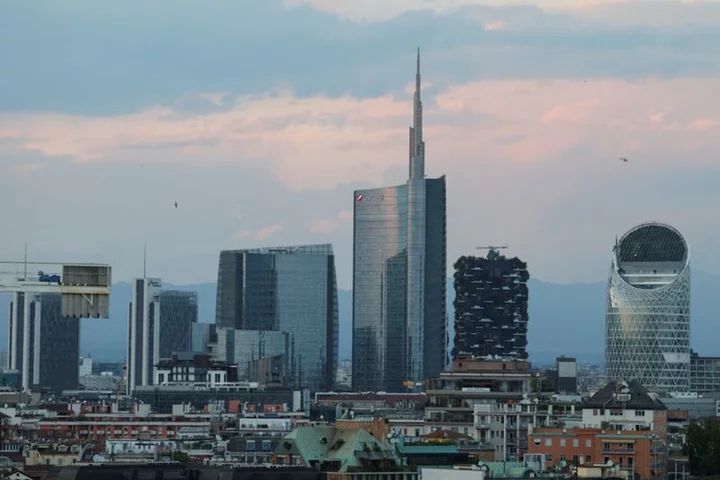By Antonella Cinelli and Giuseppe Fonte
ROME Italy's economy performed surprisingly poorly in the second quarter, data showed on Monday, offering an uncomfortable outlook for Prime Minister Giorgia Meloni as her government tries to tackle the negative impact of high inflation.
Gross domestic product (GDP) contracted by 0.3% in the second quarter from the first, but was up 0.6% year-on-year, national statistics bureau ISTAT said. A Reuters survey of 17 analysts had pointed to a flat reading quarter-on-quarter and a 0.9% rise year-on-year.
The gloomy data contrasts with the expectations of the government, which in April set a growth target of 1% for 2023 and estimated a moderate increase in GDP between April and June.
"Italy is no longer outperforming its peers and we think it will experience a sharper drop in output than other euro-zone majors in the second half of 2023," Franziska Palmas wrote in a report for Capital Economics.
ISTAT gave no numerical sector breakdown of its preliminary second-quarter GDP estimate, but said industry and agriculture output decreased whereas services grew marginally.
There was a negative contribution by the domestic component while the net export component had no impact on the estimate.
The 0.3% contraction left Italy with so-called "carryover" growth of 0.8% this year, assuming GDP would be flat in the remaining two quarters, ISTAT said.
In recent weeks, the government has said the economy could grow by at least 1.2% this year, arguing that a positive trend in the service sector supported by booming tourism would be enough to offset a widely expected slowdown in manufacturing activities.
"Italy is an advanced industrial country and the weakness in industry is much more important than the tourism sector for the economy’s health," said Lorenzo Codogno, head of LC Macro Advisors and former chief economist at Italy's Treasury.
ISTAT also said annual inflation slowed to 6.4% in July from 6.7% in June, based on EU-harmonised consumer prices (HICP).
Annual growth in prices of food, household and personal care stood at 10.4%, broadly in line with that of the month before and over 50% higher than the overall index.
To help the poorest, the government hopes to announce this week a deal with supermarkets and producers to control prices of essential consumer goods in the final three months of the year.
(Additional reporting by Alvise Armellini in Rome and Elvira Pollina in Milan; Editing by Kevin Liffey and Sharon Singleton)

